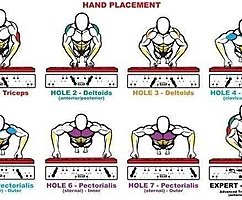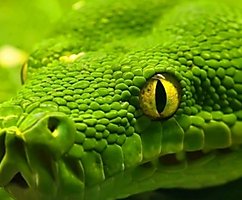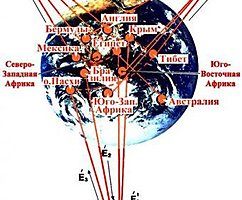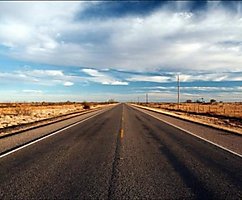Why people refuse meat?
 Bashny.Net
Bashny.Net
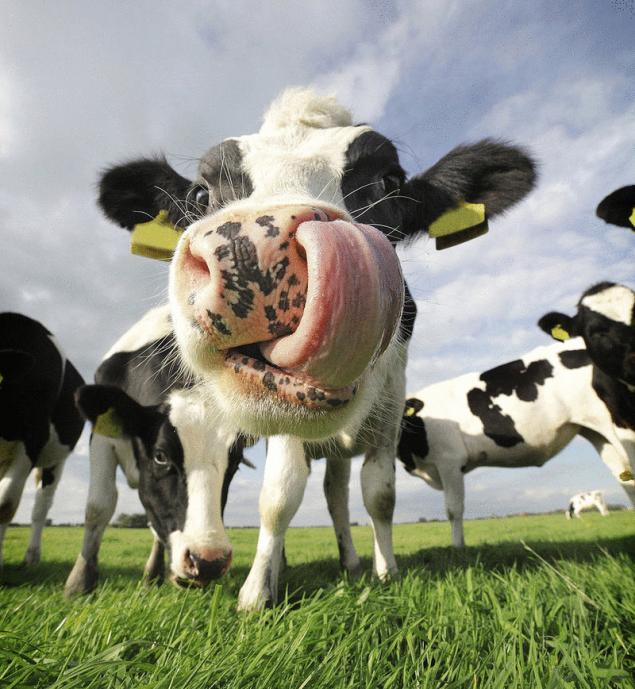
1. Physiology
Scientists know that the power of any living being corresponds to its physiological structure. All vertebrates can be divided into three types: meat eating, herbivorous and feed on fruits.
By all indications, the man standing closest to the animals feed on fruits, has much in common with a herbivore and is very different from predators. Like the apes in humans, no claws, no sharp fangs. We are like herbivores and drink involving water, and not Laka her like a predator. Because the human digestive system is not designed to digest perishable rotting meat, in the stomach, in contrast to predators, there is a strong solution of hydrochloric acid needed to digest it. The human intestine is six times longer than the body. If it gets the meat there it starts to decompose, while the predators it is rapidly excreted from the body.
Like apes, the length of the human digestive system is 6 times the length of its body; our skin has millions of tiny pores for the moisture to evaporate and cool the body through sweat; the structure of our teeth and jaws is the same as theirs, our saliva is alkaline and contains ptyalin, which helps to digest starchy food. Our anatomy and digestive system show that our bodies are adapted to eating fruits, nuts and vegetables.
Of course, the human body has the widest range of adaptability. Nature has provided human mechanisms that allow it in extreme conditions, in the absence of plant food without much harm to go on the animal. However, if this ability becomes the basis of everyday food habits, sooner or later will manifest in its entirety different negative effects.
2. Health
Eskimos, whose diet consists mainly of meat and fat, live an average of about 27.5 years. The average duration of life of the Kyrgyz people who eat mainly meat, is about 40 years. In contrast, as shown by studies conducted among these vegetarian tribes like the Hunza in Pakistan, the Otomi tribe in Mexico and among the indigenous population of South-West America, vegetarians have excellent health, stamina and longevity. Among them not a few cases when people maintain health, physical and mental activity at the age of 110 years or more. World health statistics shows that in countries where the level of consumption of meat is highest, have the highest incidence of cancer and heart disease. Conversely, in vegetarian countries, the level of these diseases the most low.
Dr. Irving Fisher of Yale University conducted a series of comparative endurance tests that vegetarians were almost twice higher than the "meat eaters". According to him, reduction in the consumption of animal protein by 20% led to increase of capacity by 33%. Another study conducted at the University of Brussels have shown that vegetarians stand the test of physical endurance 2-3 times longer than people eating meat, moreover, their strength restored several times faster. One who believes that meat is necessary for physical strength, it should be recalled that the strongest and most enduring animals — horses, elephants, bulls, buffaloes — just "vegetarians".
3. Economy
Not everyone knows that one of the leading places of environmental pollution, along with nuclear power plants and chemical industries is meat packing plants. Paul and Anne Ehrlich in their book "Population, resources and environment" write that for growing one kilogram of wheat requires only 60 litres of water, and the production of one kilogram of meat takes from 1 250 to 3 000 litres. In 1973, "new York post" published an article that talked about the terrible waste of water, a precious natural resource, a major American egg farm. This farm spent 400 000 cubic meters of water per day. This amount is sufficient to provide water to a city with a population of 25,000 people!
Meat is a food that consumes the minority by the majority. For growing one kilogram of meat requires 16 kg. of grain. Imagine that you are sitting in front of the plate with the steak, but besides us in this room sits about 50 people with empty plates. Grain 1 spent on your steak would be enough to fill their plates of porridge.
Cost of land, water and other resources meat — the most expensive and inefficient food that you can imagine.
4. Myths vs facts
Many scientists have proved the fact that vegetarian foods contain a much greater biological energy than meat. We were just forced to believe that eating meat is necessary for health. In 50 years, scientists classified meat protein as proteins are “first class”, and vegetable proteins as proteins “second class”. However, this opinion has been completely disproved, because studies have shown that vegetable proteins are as effective and nutritious as meat. The protein content in vegetarian products ranges from 8-12% in cereals, up to 40% in soybeans, which is twice more than meat. (Even lean portion of steak contains 20% digestible protein). Many nuts, seeds and beans contain 30% protein. Proteins that we need, consist of 8 “essential” amino acids. Nutritional value of meat so often extolled because it contains all the 8 amino acids. In the absence of these amino acids the human body cannot fully exist.
But here's what does not suspect most people who consume meat: meat is not the only product containing a complete set of essential amino acids — soybeans and milk, for example, also contain these substances, all 8 of the necessary amino acids in the best proportions.
In the composition of plants also has all 8 amino acids. Plants have ability to synthesize amino acids from air, soil and water, but animals can only get proteins through plants, either by eating them or by eating animals that ate plants and learned all of their nutrients. Therefore, a person has the choice to get them directly through plants or in a roundabout way, with great economic and resource cost of meat animals.
5. History
Our ancient ancestors ate correctly — typical for this kind of food: plants, seeds, fruits and vegetables. The main activity they were gathering.
Anthropologists claim that man first tasted meat during the ice age, because of the lack of food of plant origin. That is, for any vital need. Unfortunately, the habit of eating meat is preserved after the end of the ice age: either out of necessity (as the Inuit and tribes living in the far North) or because of tradition and ignorance.
The first who began to promote vegetarianism have become Buddhists and Jainism ancient India, as well as religious philosophers of ancient Greece. The most famous vegetarian from the country of myths and of antiquity, was Pythagoras.
The term "vegetarianism" is translated from Latin as an active, strong and energetic.
Undeniable contribution to the development of vegetarianism have made the great Russian writer Leo Tolstoy. At that time, the number of vegetarians among Russians started to grow. Their ranks were recorded by such famous personalities as Nikolai Peskov, Ilya Repin, Professor Alexander Voeykov, Nikolai GE, Sergei Yesenin and others. Adherents were mostly the representatives of the Russian intelligentsia — scientists, doctors, teachers, writers, poets, etc.
In the XX century the principles of vegetarianism began to popularize. Each country formed a community of vegetarians, printed Newspapers and books with a vegetarian theme, performed research on the influence of vegetarian diet on human physiology. In 1908 was organized by the world Vegetarian Union, which organized conferences on promoting a vegetarian diet among humans.
Today in the world there are over a billion vegetarians and their number increases even more.
6. Outlook
An important aspect of the formation of a harmonic personality is to instill in children a love of animals. The parents faithfully taught children in time to walk the cats and dogs, to feed the parrots, and in case of contact with the countryside never fail to show them the rabbits, the pig or the cow. Cartoons and fairy tales are full of cute forest characters who are endowed with the best qualities and that children should love and protect. With the love for animals all right. But interestingly, telling anyone ever to their children, that the sausage that they are fed by the parents is made of the most cows and pigs that are so nice in the pictures and for which humane people have created a network of death camps.
Koreans eating cats and dogs cause most of the Europeans disgust and outrage. But, we go to the stores and buy beautifully packaged cows and pigs and do not see anything wrong in this. But the Koreans are at least logically — if you have someone, why can't we have all the rest?
For the centuries-old layer of ignorance modern man is no longer able to see things as they are and in the end to understand what meat means murder and that it may be time to stop being part of the crowd and it's time to reflect on your own life. Wisdom says, who wants to make searching for the way, who do not want — is looking for an excuse. And excuses if you want you can find a lot of. In the end, "they are grown for this"... this philosophy has led to the emergence of fascism, when people are led to believe that there is a superior race is inferior. The inferior must be destroyed.
"And God said, behold, I have given you every herb bearing seed, which is upon the face of all the earth, and every tree whose fruit tree, yielding seed: to you it shall be for food" (Gen. 1:29). "Only flesh with its soul, its blood, you shall not eat. I will require your blood, which is your life, you will seek it from every beast" (Gen. 9:4-5). published
Source: vk.com/id239268913
Tags
See also
Sergey Kovalev: Why people lie shamelessly, openly and brazenly
Not every death through curiosity
How to start a man
Why do people behave strangely. Degradation of emotional needs
Why do people get sick?
Beautiful and wise parable about why people are shouting at each other
Why people whose home eternal chaos - the best of us
Why people become drug addicts: the real reason, and it's not what you think
Derrick Lonsdale, Why I left traditional medicine

